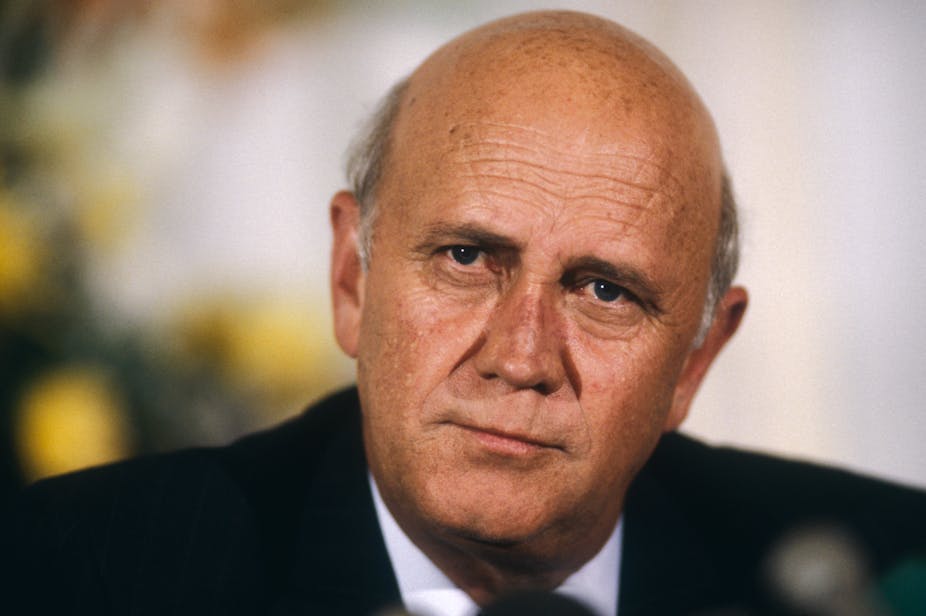Subject: F W de Klerk
The death of F W de Klerk has brought back many memories of his Presidency and the turbulent times surround him and his predecessors for those living in South Africa.
I was living in Johannesburg when news of talks between the SA government and Nelson Mandela began to circulate. This change of stance regarding the ANC was hugely significant since during the reign of de Klerk's predecessors, the ANC were persona non grata being the antithesis of a society with its disdain for black competence. Mandela’s imprisonment, alongside many of his fellow ANC followers was seen as a prerequisite for peace in South Africa which, like many countries before and since has seen its citizens fed and imprisoned themselves by feast of propaganda about this boogieman in their midst. The stories of the Sharpeville massacre in 1960 (the year before I arrived in South Africa) when a crowd of 7000 African people swelling to over 20.000 surrounded the Sharpeville police station causing the police to open fire, was a turning point in SA history and preceded the imprisonment of Nelson Mandela. The ANC campaign was then largely orchestrated from communist influenced countries like Angola which in itself during the Cold War was sufficient reason to believe the government, that the ANC were a bad lot.
The characters in this drama were themselves larger than life to an economic immigrant like myself. Stern faced, heavily accented Afrikaners like Mr Vorster and P W Botha dictated policy on behalf of the Afrikaner and all of us in this land of segregated ideologies with tribal competitiveness, both amongst the black people and also amongst the white people, dividing the Afrikaner, who’s claim to the land went back to Jan van Riebeeck in 1652 and the white, non Afrikaner people who sketched their lineage to the 1820 Settlers in what became Natal.
The stern face of religious bigotry personified by the Dutch Reformed Church laid the ground for a destiny argument which many in the Afrikaans community believed was their Devine right of passage. These stern political dominies with the weight of a religious convictions propping up their political decision making, these were the formidable face of the political system in South Africa in the 1960s, 70s and 80s and it was only in the latter part of the 1980s that, with the departure of P W Botha and the arrival of President de Klerk, conciliation started, leading to full negotiations on a hand over of power in 1994.
To many white people he was the inevitable outcome of a bloody attempt to hang onto the country and power, to others he was a sell out to overseas pressure to dismantle their power. If only a black middle class had been allowed to flourish and partake in the political affairs of the country perhaps a more equitable solution would have eased the pain for the white person but the die is cast once you opt for a ‘one man one vote democracy’ which F W de Klerk recognised as inevitable.
Sent from my iPad

No comments:
Post a Comment